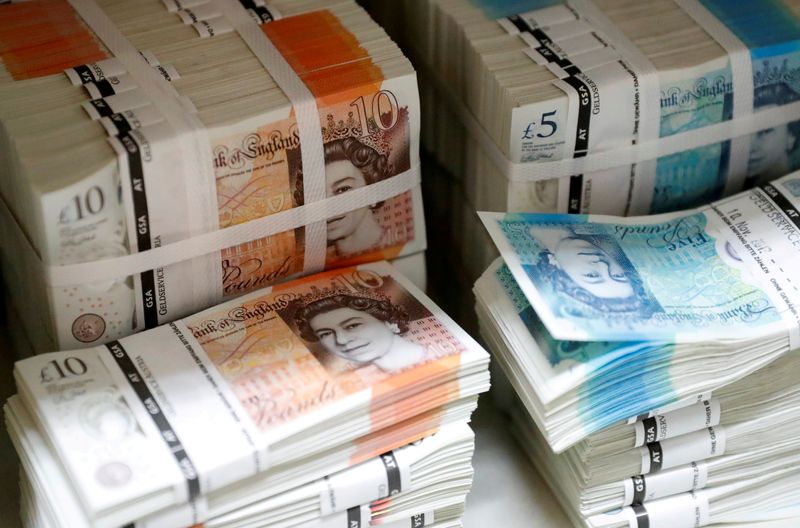By Julien Ponthus
LONDON (Reuters) - Sterling hit a two-week high on Thursday, adding to the previous session's gains, as traders focused on hopes that a post-Brexit trade war with the European Union will be avoided and on expectations the Bank of England will raise rates this year.
The pound was also helped by the dollar's weakness as upbeat sentiment lifted stock markets and risk-oriented currencies such as sterling.
At 1456 GMT sterling was up 0.16% versus the dollar after having earlier reached a high of $1.3734, its highest level since Sept. 24.
Against the euro, the pound rose 0.17% after touching a two-month high of 84.52 pence during morning trading.
The pound jumped against the dollar on Monday after BoE governor Andrew Bailey stressed the need to prevent inflation from becoming permanently embedded, and fellow policymaker Michael Saunders said households must brace for "significantly earlier" interest rate rises.
On Thursday, BoE policymaker Silvana Tenreyro said raising interest rates to tackle a surge short-term inflation bumps could be counter-productive.
"Typically, for short-lived effects on inflation, such as the big rises in the prices of semiconductors or energy prices, it would be self-defeating to try to respond to their direct effects," she said.
Investors are closely watching for any signs that the markets may have got ahead of themselves in pricing a rise in British interest rates before the end of the year.
The BoE, facing a rise in inflation, looks set to be the first major central bank to raise interest rates since the beginning of the pandemic.
For some analysts, Britain's negotiations with Brussels to ease the transit of goods to Northern Ireland and general post-Brexit tensions are likely to keep a lid on the pound.
"The British Premier got things wrong so frequently during the Brexit negotiations that a stubborn British position only entails further political and economic risks", argued Commerzbank (DE:CBKG) strategist Ulrich Leuchtmann.
"Those make a stronger Sterling impossible, despite rapid Bank of England rate hikes", Leuchtmann said, adding that despite hawkish comments from BoE policymakers, "sterling was only able to retrace the losses recorded in September".
So far, the EU's proposals to slash paperwork and checks on food and medicines coming into Northern Ireland from mainland Britain have been cautiously welcomed by Northern Irish business groups.
As far as economic indicators are concerned, data this week, including UK jobs figures for September came roughly in line with forecasts.
Britain's economy grew 0.4% in August, leaving it just 0.8% smaller than it was in February 2020, the Office for National Statistics said on Wednesday.
Economists polled by Reuters had forecast monthly gross domestic product growth of 0.5% for August.

Graphic: World FX rates in 2021 http://fingfx.thomsonreuters.com/gfx/rngs/GLOBAL-CURRENCIES-PERFORMANCE/0100301V041/index.html
Graphic: Trade-weighted sterling since Brexit vote http://fingfx.thomsonreuters.com/gfx/rngs/BRITAIN-STERLING/0100310M299/index.html